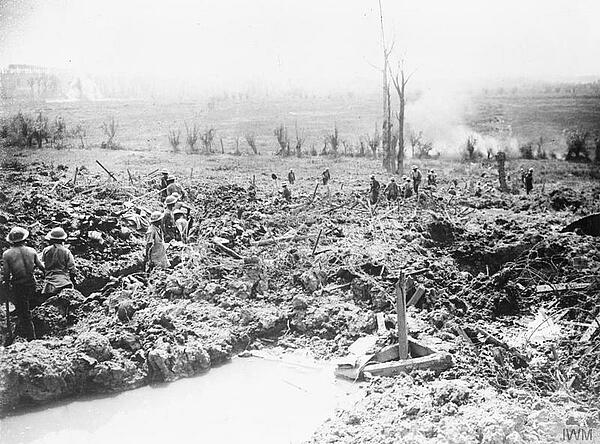Plumer versus Gough
Herbert Plumer and Hubert Gough were two military commanders who differed dramatically in their styles.
Plumber was Officer Commanding the Second Army based within the Ypres Salient for most of World War One, while Gough had rapidly ascended the military ladder to become the Commander of the 5th Army. It was during the Allied attack on German positions to the southeast of Ypres in 1917 when the stark contrast between the two came to light.
General Haig made his plans for the Western Front clear in 1917. He was tasked by the Admiralty with clearing the Belgian coast of German occupation, particularly areas such as Zeebruge and Ostend, so that German U-boats could stop using their submarine bases. Haig was happy to oblige, and also set into motion his own plans to secure an Allied success in the Ypres Salient in order to reduce the options for the Germans based in the area and encourage them to retreat. He hoped this would encourage strong German forces to retreat too, and this would make it easier for Haig’s cavalry regiments to target the German troops.
The plan was based around an attack by two large armies. This first was the Second Army under General Herbert Plumer, who planned to attack the Messines Ridge. Aware of the casualties that had occurred around the Ypres Salient during the war, his philosophy for the campaign was to ‘waste metal, not flesh’. He had even tested the time it took for debris to land following explosions, so that infantry would not be harmed when they rushed to attack the Germans. The second army was based north of Plumer’s - Hubert Gough’s 5th Army.
Part of Plumer’s army was tasked by Haig with capturing Gheluvelt Plateau, with the help of Gough’s army. Haig saw this as a joint offensive that would be key to the whole attack - particularly as the failure of the two armies to meet in the middle would leave a large gap of German troops who would be able to attack from the rear.

Historians disagree on who was responsible for the events that took place after the attack was ordered, but it is clear that Haig’s plans never came to light. Many argue that Gough simply did not believe that he should share the attack on the Gheluvit Plateau with Plumber, seeing it as something that could only be achieved using his 5th army. His close relationship with Haig may have been responsible for this opinion.
Records suggest that men from the Second and Eighth Corps of Plumer’s army went on scouting patrols on 8th June around Gheluvelt Plateau, but came up against strong German resistance. Plumber asked Haig for three days so he could bring more artillery and men up ahead of the major assault on the plateau. However, Haig did not support this idea, and many believe this is a result of his belief that Plumer - a huge success in the Messines - did not require more time to be successful and was concerned that they would lose their advantage if they waited.
Haig responded on 9th June by transferring the Second and Eighth Corps to Gough’s 5th Army and ordering an attack on Gheluvelt Plateau to secure the ridge east of Ypres. However, the attack never went ahead.
Instead, on 14th June, Haig’s senior officers met at Lillers and Gough announced that he had concluded an attack on the plateau would have placed troops in danger, and that if they had failed the Germans could have retaken Ypres itself, which was the heart of the Allied campaign in the Salient. Other disagreed, stating that the attack must take place to ensure the German lines were weakened. However, Haig apparently listened to Gough and the attack on the plateau was pushed back to “a later date”.
While a major success at battles such as Messines Ridge, some military historians argue that if Gough had followed his instructions the attack would have had a more devastating impact on the German front line and could have led to a shortening of the war. In fact, historian Robin Neillands refers to the decision as a “tragic mistake” - evidence suggests that the Germans feared a successful Allied attack on the plateau as the Allies would have had the higher ground. With this advantage, the Allied artillery could have been devastating on the Germans and they may have been forced to retreat, as Haig had initially planned.
MLA Citation/Reference
"Plumer versus Gough". HistoryLearning.com. 2024. Web.
